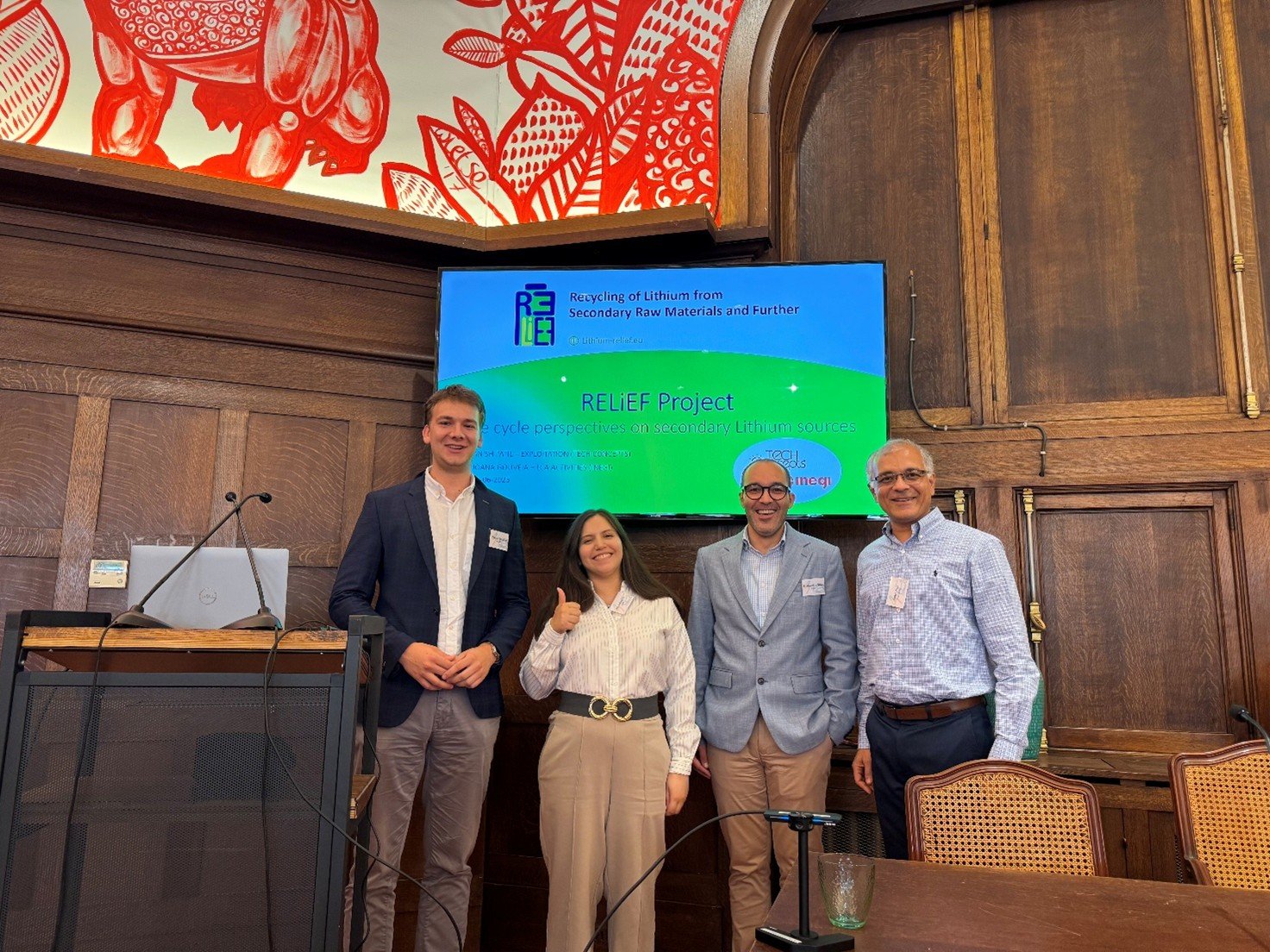Towards A European-Wide Harmonised Transport-Specific LCA Approach: RELiEF At TranSensus LCA Joint Workshop
25 June 2025 – Brussels, Belgium
In June, the RELiEF project took part in the final event of the Horizon Europe Coordination and Support Action (CSA) project TranSensus LCA, held in Brussels. Bringing together over 60 stakeholders, the event featured a joint workshop with six other projects – needs, and opportunities related to Life Cycle Assessment (LCA) and its role in enabling a circular economy. TranSensus LCA aims to develop a harmonised, Europe-wide LCA framework for zero-emission road transport – a vital step toward meeting the European Green Deal targets and supporting the transition to a digitally enabled, climate-neutral, and sustainable economy. From RELiEF, partners TechConcepts, INEGI and Avesta were present at the event and presented the work done with the RELiEF project in a two-part presentation delivered by Anish Patil (TechConcepts) and Joana Gouveia (INEGI), as part of the joint workshop of the final event. The presentation highlighted both exploitation strategies and sustainability insights from the project.

TechConcepts led Part I: Exploitation, beginning with an introduction to the RELiEF project and its global approach to lithium recovery and battery material sustainability. The presentation emphasised the role of the RELiEF Cluster Hub, a collaborative platform that fosters dialogue on regulatory challenges and opportunities for materials used in batteries. TechConcepts also shared key insights from stakeholder perspectives on the evolving EU regulatory framework, underlining the importance of early engagement to shape innovation paths. Highlights from a recently published journal paper (which is currently under review, and available here) summarising the findings were also presented, showcasing the project’s contribution to policy-relevant research. Findings indicate that these policies, frameworks, acts (such as the Green Deal Industrial Plan, Net Zero Industrial Act, Critical Raw Materials Act, and European Battery Regulation 2023) – although very relevant and sharing common objectives – exhibit overlaps and inconsistencies that create barriers to investment and innovation.
INEGI followed with Part II: LCA for Technology Ecodesign in Lithium Recovery from Waste Streams, focusing on the project's sustainability aspects and Life Cycle Assessment (LCA) work. The presentation covered RELiEF’s efforts in secondary lithium recovery, placing it within the context of global lithium market trends. INEGI introduced the RELiEF Life Cycle Approach, detailing how LCA is used to inform process design decisions and enhance the ecodesign of emerging technologies. Furthermore, integrating the sustainability assessment results in the business model development was also emphasised as key to bring fruition to the potential sustainable improvements. The session concluded with an overview of LCA results and key recommendations to improve the environmental performance of lithium recovery processes from waste streams.

Furthermore, Joana took part in the panel discussion that followed, contributing to the dialogue on the importance of harmonising LCA principles. She highlighted the critical role of high-quality data in ensuring reliable assessments, supporting informed decision-making in research and innovation, and advancing sustainable technology development within a circular economy framework. The SUNDIAL platform, developed by INEGI and further matured in RELiEF, was given as an example of how digital tools can support a more structured and harmonised life cycle data collection process. The discussion highlighted diverse perspectives on how LCA can support research and innovation, drive sustainable technology development, and enable a circular economy.

The event allowed entities from several projects to discuss opportunities for future collaborations and continuing the work developed in TranSensus LCA. In this sense, the RELiEF case study provides a unique opportunity to analyse how the use of unconventional sourcing of secondary critical raw materials can affect the environmental performance of zero-emission vehicles.